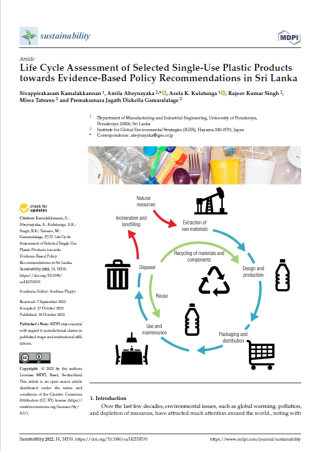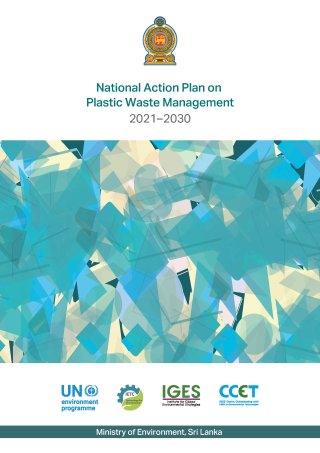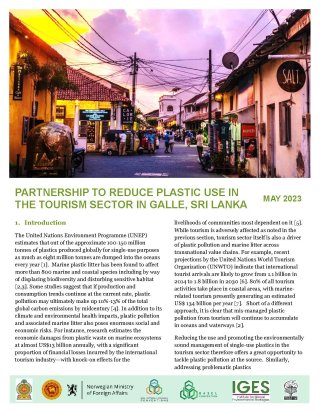- English
Asia-Europe Environment Forum (ENVforum) Annual Conference 2019
29-30 July 2019 (Yokohama)
29-30 July 2019 (Yokohama)
Submission to Policy Process

The participants of the Asia-Europe Environment Forum (ENVforum) Annual Conference 2019 “The Role of Consumers in Triggering Change in Consumption & Production” brainstormed the root causes of the plastic waste problem and proposed policy recommendations based on national experiences and expertise on the issue. The following were the key insights found:
- The main driver behind plastic waste is overconsumption. Therefore, to address the issue we need to consider absolute reduction the use of plastic
- Preventing plastic waste is more than merely addressing it as a waste management challenge. It needs to be tackled at various levels with ensuring representation of stakeholders involved in all stages of the plastic life cycle. Reduction of plastics must go beyond recycling and consider a circular economy approach including life-cycle analyses of plastics; adopting a supply chain perspective; and having clear understanding of stakeholder groups lobbying against progressive actions
- Consumers can be a powerful force but clear channels for consumers to be heard are needed.To allow for thorough information and awareness, we need triggers and an enabling environment to act, and a recognition that there are also limitations to what consumers can do to change the whole system
- Total bans on plastics are not always a solution.Plastic is not bad or good – despite the daunting statistics, unless there is a perfect substitute for plastic, it is here to stay due to its characteristics. For example, in the medical industry, there is a lack of such alternative which could withstand contamination as well as plastic. Therefore, we must invest in, or ensure availability of viable alternatives. At the same time, there is a need to practice caution from shifting the problem to other potentially less sustainable materials. There is a need to
Based on these insights, the following policy recommendations were formulated:
- Extended Producer Responsibility (EPR) systems should be made more ambitious by targeting problematic single-use plastics.Such a system could include:
- introduction of incremental fees
- differentiated cost structure to incentivize greater design for the environment
- Regulation across the supply chain remains key for implementing a life cycle approach to plastic packaging management.Main actions could include:
- targeting distributors and logistic services (in addition to consumers and retailers)
- take back obligations of transport packaging associated with large consumer goods
- Obligatory information disclosure should be considered for large manufacturers, producers, distributors and collectors, with emphasis on reporting on generation and trade of plastics
- Claims on recyclability, reusability, and material reductions should be made a legally enforceable part of product quality standards
Date:
Copyright:
Languages:
- English
Asia-Europe Environment Forum (ENVforum) Annual Conference 2019
29-30 July 2019 (Yokohama)
29-30 July 2019 (Yokohama)






